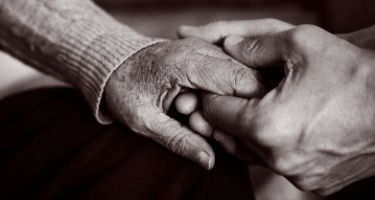Caring for a dependent child is a full-time job. There are not enough government resources, and those that exist are often deficient. It must feel, more often than not, as though the obstacles are insurmountable, the forms and red tape endless. In order to make it through the days and months, we come up with practical solutions for everyday challenges. We have an explanation for the bank to be able to sign for our dependent daughter and a letter from the family doctor so that we can make important health care decisions on behalf our dependent son. Often, these pragmatic solutions are effective. However, if there is one thing I have learned from years of practice, they do not always work.
Most of my clients come to me in times of crisis. My job then becomes putting the broken pieces back together. We often succeed in doing so, but the cost to my clients – as much emotionally as financially – is significant. My hope is to explain how many of these crises could have been avoided if these de facto guardians of property and the person had taken the necessary steps to become legal guardians once their child had reached the age of majority.
The key to understanding why you should consider becoming your child’s Power of Attorney (POA) or legal guardian of property and/or the person turns on the relationship between parental authority and a person’s capacity. Parental authority can be defined as the bundle of rights that the law accords to parents with respect to the person and property of their unemancipated children. Capacity, by contrast, can be best understood as a person’s ability to make binding decisions about his/her person and/or property.
While your children are minors, you will be able to make decisions for them by right of your parental authority. However, the Substitute Decisions Act (SDA) creates a presumption of capacity for personal care decisions when an individual is sixteen years old and for property decisions when an individual is eighteen years old. Ultimately, once the law presumes that your child has capacity, your ability to make a decision on their behalf will, in each case, depend on the type of decision you wish to make and the statutory framework that governs it.
The practical result is that the pragmatic solutions that we have all used may not continue to and legally should not work once your child is presumed to have capacity. To avoid being in such a situation, the solution, in many cases, is to become your child’s POA, if they have the capactity to grant one, or their Guardian of Property and/or the Person, if they do not.
Please note that no two cases are alike. As such, my comments are intended to be used for general information purposes only. If you have specific questions or would like advice about your situation, please call my office to set up an appointment. It would be our pleasure to assist you in any way we can. We work directly with our clients to make the process as simple and stress free as possible.
This blog post was written by Heather Austin-Skaret, a Partner in the Wills and Estates, Estate Litigation and Real Estate teams. She can be reached at 613-369-0356 or at Heather.Austin-Skaret@mannlawyers.com.





















